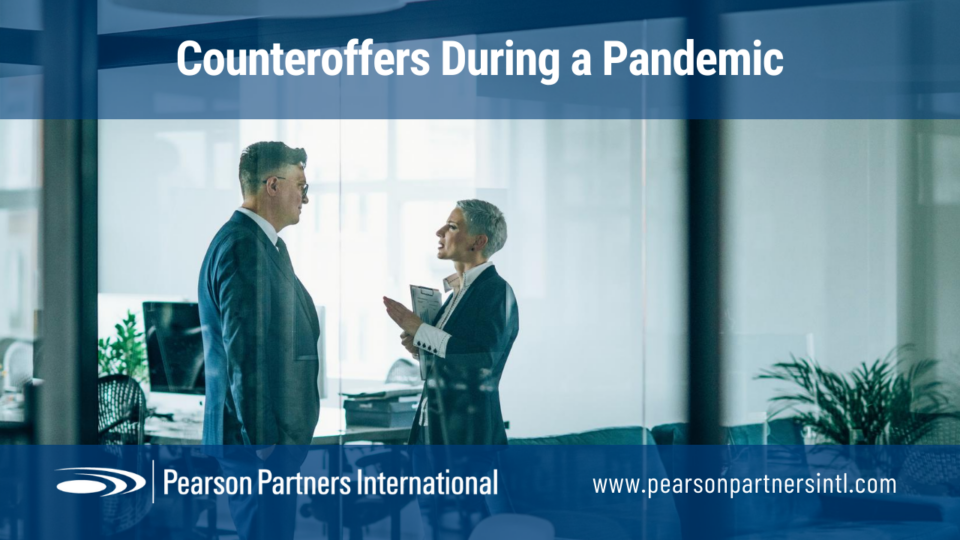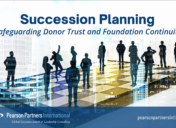“Congratulations on your new chief financial officer job, Mr. Smith! It has been great working with you on this assignment for my client, Global Atlantic Corporation.” I have said similar things on no less than nine separate occasions since the beginning of the COVID-19 pandemic. (All names in this article, except the author’s, are made up to protect both the guilty and the innocent).
Pretty impressive record for an executive search professional in an ordinary four- to five-month period, but especially impressive during a pandemic. For those who do not know the executive search industry well, we do low-volume and high-touch recruiting, meaning that in a typical year, most retained search consultants are likely doing between 10 and 20 searches. 15 searches in a year would be a substantial year. So, given the current market environment, these are very strong numbers (even if I do say so myself).
Now, before I go patting myself on the back, let’s talk about what happened just two weeks after I had my previous conversation when I called to check in with my placement. “Hello, Mr. Smith,” I said. “Just checking with you one final time before you start on Monday with Global Atlantic Corporation.” (Pause…) “What? Your current employer has professed their undying love for you, offered you additional responsibilities, given you more salary, bonus and equity?” (Pause…) “They said they had always had these big plans for you and were just waiting for the right time?” (I asked, incredulously.) “Oh, you also have some concerns about making a change during these perilous times?” (Pause…) “But you have given Global Atlantic Corporation your word,” I said. “We have passed on other great candidates because you told us that you are a Global Atlantic kind of person.” (Pause…)
At that point, as the recruiter, I had to decide among different options with Mr. Smith. Do I beg, do I cry, do I get angry or do I move on? My experience generally tells me that one is better off moving on at that point, so I did.
Of the nine recent successes I mentioned above, I have had candidates go back on their word five times. To put this in perspective, in ordinary (non-pandemic) times, I might have a candidate accept a counteroffer once every year or two. In executive search, we find great people for our clients. Great people are always in demand, and even more so during a pandemic or other time of uncertainty, whether economic, institutional or social. That said, there are several effective strategies candidates and employers can benefit from in managing counteroffers.
Candidates
If you are an executive who has accepted an offer from a new employer and received a counteroffer from your current employer, I would advise you to consider the reasons why you were interested in making a move in the first place. Typically, problems don’t fix themselves, and difficult people tend to remain difficult. So, while it might be more comfortable in the short term not to change jobs, in the long term, you risk being back where you started, albeit with a few more dollars in your pocket. You also run the risk that your employer will remember what happened and could hold it against you. Additionally, the personnel from the company that you said you would go to work for, as well as the executive recruiting firm (if applicable), will often have a bad taste in their mouths about how you treated them. And, as the saying goes, it’s a small world.
Employers Hiring
If you are an employer looking for good people, always remember that when the recruiting process seems to be over, it’s not over. If you are looking to hire top-flight talent into your organization, it is imperative that once your new recruit has signed on the dotted line, you stay close to him or her during the transitional period. Touch base consistently, grab a meal with him or her if you can, and let this new hire know how excited you are to have him or her on the team. This helps the candidate to focus on the new opportunity versus what he or she is leaving.
Another successful strategy to combat counteroffers is to minimize the window of time from the day the candidate gives notice until he or she starts with your company. It is also helpful to periodically update the incoming employee on all the good things happening at your company. It is important in these uncertain times to keep the candidate focused on the opportunity that awaits and to express to the candidate the strength and confidence your company has in its future (if this is accurate). If the company is not doing well, remind the candidate of why he or she wanted to join—a turnaround, a new adventure, a high-risk/high-reward opportunity, etc.
Employers Losing an Employee
If you are an employer who has just been given notice by a key employee, this pandemic and the general uncertainty around us is an opportunity for you. As bad as it sounds, the truth is that money (often) talks, as does opportunity. More importantly, if your company is stable, you can focus your employee on the strength and stability of your organization. It is important to convey to your employee (and mean it!) that his/her willingness to consider other opportunities is not something you will hold against the employee in the future. If you have done your part to stay close to your employees and have maintained a personal and professional relationship with a potentially departing employee, then you have an opportunity to influence him or her to stay with your organization. That said, think beyond the initial loss of a key employee. Maybe the right answer is to let the person go. Clearly, something caused this person to consider making a move. Will he or she want to move again in the future? Maybe you will find someone even better for your organization. Maybe a fresh set of eyes on familiar problems and challenges will make you a stronger organization in the long run.
Conclusion
In conclusion, the crazy uncertainty with the pandemic and its effects will pass. In the interim, it creates opportunities to recruit great people and hang on to great people. You just need to understand that there will always be strong competition for top talent.
By the way, with the help of my great team and some resilient clients, we have found new people to fill all but one of the roles I was working on pre-pandemic. In fact, in one case, the person who accepted the counteroffer suggested the winning candidate for the role he decided not to take, proving that not overreacting to bad news does have benefits.
Related Posts
- ← White Paper: The Business and Economic Impact of COVID-19
- Exiting Gracefully in a Career Transition →

















